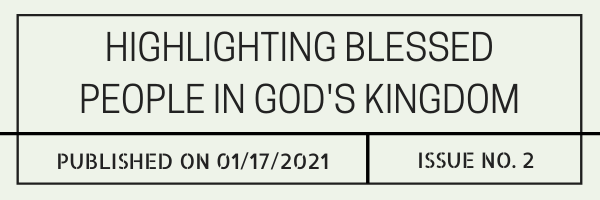
“Abigail – A Peacemaker”
[By Robert Haynes]
“Blessed are the peacemakers, for they shall be called sons of God” (Matt 5:9, NKJV).
When it comes to being slighted, wronged, or when dealing with conflict, being the one that makes peace, instead of seeking revenge or justice, is contrary to how the world expects us to react. If we react in such a way, we find ourselves opposed to God when we take it upon ourselves to dispense justice. How can we be called the children of God when we are not content to wait upon Him and take it upon ourselves to mete out justice as we choose? Rather, the peacemaker will recognize that in God is our peace, and the peacemaker will act to ensure that we are right with God or that our will aligns with God’s.
Abigail, in I Samuel 25, is a great example of a peacemaker, and through her actions she is esteemed as blessed. While she was praised for her character, her husband, Nabal (or literally fool) was harsh and evil. Hospitality is an important tenet for the Jewish people (and the Christian). In the time of a feast, it would seem right to share in the abundance of food. David makes his case as his men need food, noting the protections his men had given to Nabal’s shepherds. He tells his men, “And thus you shall say to him who lives in prosperity: ‘Peace be to you, peace to your house, and peace to all that you have! Now I have heard that you have shearers. Your shepherds were with us, and we did not hurt them, nor was there anything missing from them all the while they were in Carmel. Ask your young men, and they will tell you. Therefore, let my young men find favor in your eyes, for we come on a feast day. Please give whatever comes to your hand to your servants and to your son David’” (I Sam 25:6-8, NKJV). David contacted Nabal respectfully and with peace in mind; however, Nabal responded in arrogance. So, David set himself to kill Nabal and his males for the harsh response saying, “May God do so, and more also to the enemies of David, if I leave one male of all who belong to him by morning light” (I Sam 25:22, NKJV).
It is in the moment that Abigail recognizes what is about to happen, and she takes immediate action while considering the position that this would put David in. She entreats David and also takes the blame upon herself: “Please forgive the trespass of your maidservant. For the LORD will certainly make for my lord an enduring house, because my lord fights the battles of the LORD, and evil is not found in you throughout your days…And it shall come to pass when the Lord has done for my lord according to all the good that He has spoken concerning you, and has appoint you ruler over Israel that this will be no grief to you, nor offense of heart to my lord, either that you have shed blood without cause, or that my lord has avenged himself. But when the LORD has dealt well with my lord, then remember your maidservant” (I Sam 25:28,30-31, NKJV). In her response is a concern for David’s own conscience. In that way, she persuades David to stand down, and David exclaims “…Blessed is the LORD God of Israel, who sent you this day to meet me! And blessed is your advice and blessed are you, because you have kept me this day from coming to bloodshed and from avenging myself with my own hand” (I Sam 25:32b-33, NKJV).
Abigail had the opportunity to stand by and do nothing, for which her wicked husband would have received a judgment perhaps too great for his reckless words and lack of hospitality. Yet, she chose to appeal to David to maintain the cleanness of his conscience before God and God’s people in Israel. Following Abigail’s example of making peace, let us offer to others the peace that God offered to us despite the sin that separated us, knowing “Now then we are ambassadors for Christ, as though God were pleading through us: we implore you on Christ’s behalf, be reconciled to God” (2 Corinthians 5:20, NKJV).

Well thought out. I suppose the Lord Jesus also became that peacemaker between us and God when he took upon himself the due of our sins that we may turn from our ways of death to Him who reached out to help us..